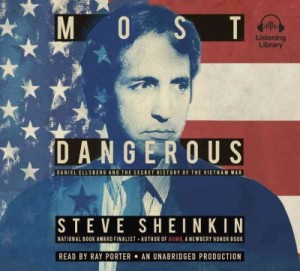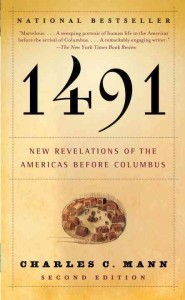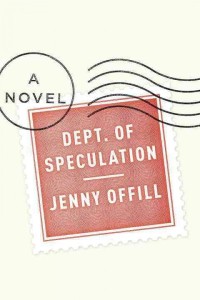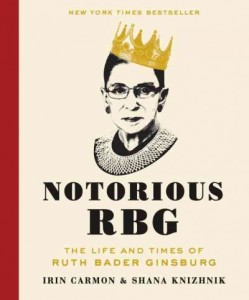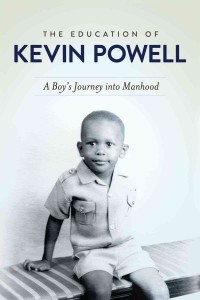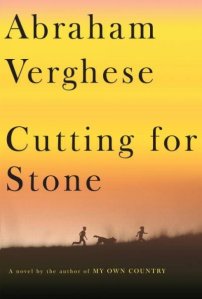I’ve started doing a lot of Reader’s Advisory for work while we are all working from home. I thought if I was keeping better track of my reading, it would be easier to remember what to recommend. So here I go – I swear, I’ll post at least a book a week for the next month so I can try to get back into the habit.
I haven’t written anything in a long time
But that doesn’t mean I’ve stopped reading. Off the top of my head, here are some books I’ve read in the last year or so. Does anyone want to hear about any of them?
The Parable of the Sower AND The Parable of the Talents by Octavia Butler (I loved the first, but it was so brutal it took me a year to work up to attempting the second. These books HURT but they are so worth it.)
The Inspector Gamache series by Louise Penny (I blazed through this series despite my efforts to pace myself. I love, love love Three Pines and want to live there. But only in the summer.)
How to Think by Alan Jacobs (I hoped it would make me smarter, but…)
Stamped From the Beginning by Ibram X. Kendi (My book club read this and the discussion was great. It took me ages to listen to this for 2 reasons: It’s extremely dense and the language is academic; and it is LOOOOOONNNNNG. )
Standard Deviation : a Novel by Katherine Heiny (My father-in-law recommended this because he loved the characters. I was appalled by them but reluctantly impressed nonetheless by the story.)
The Glass Castle by Jeanette Walls (Oh. My. God. Your childhood ain’t got NUTHIN on this woman’s childhood.)
Hunger : a Memoir of (My) Body by Roxane Gay (Every human should read this.)
The Penric books by Lois McMaster Bujold (A series of novellas that take place in the World of Five Gods. Imagine Miles Vorkosigan as a religious rather than a military hero and you’re close.)
Endurance : a Year in Space, a Lifetime of Discovery by Scott Kelly (I followed his year in space kinda obsessively, and just read the article about how his DNA is still different from his twin’s one year after his return. Great audiobook read by the author.)
What Happened by Hillary Clinton (I still can’t quite figure out what happened. I tried Reading the Trump book Fire and Fury to see if that would fill in some holes, but it was so poorly edited and awful I couldn’t finish it.)
The Surgeon by Tess Gerritson (Read as a reader’s advisory assignment for work. Gripping, but too gory for me to continue the series. Also there’s a tiny plot point where they violate a library patron’s privacy, but that only bothers librarians, I guess.)
Killing Floor by Lee Child (another RA exercise. Good story, but I had to laugh at the hero who is so, so much larger than life that my willing suspension of disbelief almost failed me. I might read another of the series at some point if I need a good thrill.)
The first two Harry Bosch novels by Michael Connelly (Another RA assignment. Harry Bosch is Harry Dresden without the magic part. A little too dark and gritty – I’ll probably read more, but not back to back. But how could I not appreciate a hero named after my favorite Art History anomaly?)
Natural-born Heroes : How a Daring Band of Misfits Mastered the Lost Secrets of Strength and Endurance by Christopher McDougall (Two of my favorite things: endurance sports and World War II Nazi resistance. How could I fail to like this one?)
H is For Hawk by Helen Macdonald (This book was beautiful. Sad. True. Eloquent. Plus it finally convinced me to read Sword in the Stone, which was delightful.)
Sword in the Stone by T.H. White (As described above, delightful.)
Meddling Kids by Edgar Cantero (As a Scooby Doo fan, I had to read it. Truly creepy while simultaneously managing to be campy – and mercifully, the Fred character is already dead at the beginning, so he’s much less annoying as a figment of the Shaggy character’s imagination. The Velma equivalent kicks ass. Best of all, the dog can’t talk.)
Fanny Says by Nickole Brown (This book is the poet’s tribute to her grandmother which paints her realistically, warts and all, but makes you understand why her family loves her anyway.)
The Life Changing Magic of Not Giving a F*ck by Sarah Knight (My book club read Marie Kondo’s book and this was my attempt to recover. Unlke Kondo’s book, it actually did kind of change my life, so, hey, points for truth in titling.)
F*ck Feelings by Michael Bennett (I’ve read an awful lot of books lately with profanity in the titles. This was just OK, but it was fun to read on the train since people stare.)
The Teleportation Accident: A Novel by Ned Beauman (Weird, weird, weird. But fun.)
Spare Parts by Joshua Davis (Great story, plus it was our Hillsboro Reads title last year and one of the guys from the book came to one of our events. He was terrific.)
Guinea Pig Diaries: My Life as an Experiment by AJ Jacobs (AJ Jacobs never fails to amuse the hell out of me. Not as good as his Drop Dead Healthy but few things are.)
The Paris Architect by Chrles Belfoure (Recommended by my husband’s uncle. WWII feel-good Nazi resistance.)
Grunt by Mary Roach (This audiobook got me through a bout of flu/food poisoning. If a book is good enough to distract you from vomiting, that’s a heck of an endorsement.)
I’ll Be Right There by Kyŏng-suk Sin (I remember absolutely loving this book, and wondering what I missed by not reading it in its original language. But now the plot has slipped away, and all I can remember is the main character’s sense of loss and how melancholy-in-a-good-way the book made me feel.)
Almost Missed You : A Novel by Jessica Strawser (Read for book club. Twisty, and involves child-napping. Usually I refuse to read missing kid books but I stuck it out. Just OK.)
The Ocean at the End of the Lane by Neil Gaiman (I think Gaiman was channeling Ray Bradbury on this one. It had that creepy as hell “all the adults are evil but no one believes the kid because he’s a kid” thing going.)
The Secrets of My Life by Caitlyn Jenner (Fascinating. And now as a bonus I actually know who the Kardashians are.)
Promised Land by Cynthia Felice (Co-written by Connie Willis. Lighter and fluffier than her later stuff, but I liked it. Similar to Anne McCaffrey’s more romance-y books.)
Plato and a Platypus Walk into a Bar– : Understanding Philosophy Through Jokes AND Heidegger and a Hippo Walk Through Those Pearly Gates : Using Philosophy (and jokes!) to Explain Life, Death, the Afterlife, and Everything in Between by Thomas Cathcart (A coworker recommended the first, and I went through it and the second. Funny, plus the audiobooks are read by Grover Gardner, who I would most likely listen to if he chose to read the dictionary or a shopping list. There are more, but I’m trying to pace myself.)
Crosstalk by Connie Willis (Fun. Fluffier than her last two. Reminded me of Bellwether, updated for the smartphone age.)
Fairy Tales for Angry Little Girls by Lela Lee (Ha.)
Alexander Hamilton by Ron Chernow (Long. Odd. The founding fathers were a bunch of nut jobs, and I can’t get enough.)
Fates and Furies by Lauren Groff (Nobody knows anybody as well as they think they do.)
Angel Catbird by Margaret Atwood (Goofy. Atwood is having fun here.)
Territory by Emma Bull (A magical realism western with feminist overtones. Unsatisfying ending but a nice journey until I got lost.)
Hag-seed by Margaret Atwood (this might be the second-best Margaret Atwood ever, but I like Shakespeare and awful lot, so I might be biased. I alternated reading with listening and while the book is great, the audio kicks it up a notch or two or five.)
Rose Under Fire by Elizabeth Wein (YA) (I read this because I loved Code Name Verity so much, but it wasn’t as devastating. Good, but not heartbreakingly so like Verity.)
I have listened to at least 4 of Sarah Vowell’s audiobooks but can’t remember now looking over the titles which ones. I know I liked Lafayette in the Somewhat United States best, but they were all good.
children’s books:
Hello, Universe by Erin Entrada Kelly
Graveyard Book by Neil Gaiman
The Crooked Sixpence : Uncommoners Series, Book 1 by Jennifer Bell
Running with the Reservoir Pups by Colin Bateman
Every Single Second by Tricia Springstubb
Bring Me the Head of Oliver Plunkett by Colin Bateman
I’m sure there were more, but I am tired now and want to read.
Most Dangerous: Daniel Ellsberg and the Secret History of the Vietnam War by Steve Sheinkin.
I just found this title in my drafts and I can’t believe I didn’t write about it back when I had just finished it. It was in our YA section, but I think any person my age or a little older would like it as well, since it’s an in-depth look at events that happened when I was just too young to know what was going on, but certain words came up on the news over and over. I remember hearing nightly about Watergate and President Nixon and having no idea what was going on, and now it makes more sense.
The book begins by introducing us to Daniel Ellsberg and taking us through his military career and giving some background on the Vietnam War. Worth the price, right there – I had never quite understood how it all came about, and Sheinkin takes us (briefly) all the way back to the 1940s to give an idea of the events that led to the US involvement. We witness Ellsberg’s transformation from a military hotshot to a Pentagon consultant to a whistleblower who risks everything – and learn a great deal of American history in the process. It’s like a Tom Clancy novel with all of the intrigue and suspense, but has the added value of teaching history as well. I recommend it wholeheartedly to anyone who wants to know more about the 1960s and 1970s and how the counterculture movement was born.
Oh, and the audiobook reader does great famous person voices.
1491: New Revelations of the Americas Before Columbus by Charles C Mann
Holy crap, this book. I had to check it out 3 times to get through it – it’s dense, and can get bogged down in details, and I had to skip backward a lot to figure out what I must have missed. But it’s worth the effort, because the picture it gives of the Americas before and immediately after the Europeans first landed is eye-opening. Be warned, though, if you are as susceptible to white guilt as I tend to be, you will be horrified. As well you should be, but…it’s excruciating at times. It’s interesting to note that the world of historians and anthropologists isn’t any different from the world of their larger societies – unpopular ideas, even with extraordinary amounts of evidence behind them, get squashed by the more powerful factions.
Department of Speculation by Jenny Offill
This book was recommended to me by a coworker as “a perfect story of a marriage”. I read it in one sitting and went through an emotional wringer while riding an emotional roller coaster while seriously needing a glass of wine and therapy. Trigger warning: if you have ever been disappointed, betrayed, disillusioned or in any way wronged by a lover/spouse and gone through the painful process of recovery from that trauma, this book is going to bring it all back in exquisitely excruciating detail. But you should probably read it anyway. It’s that good.
Bucky Fucking Dent by David Duchovny
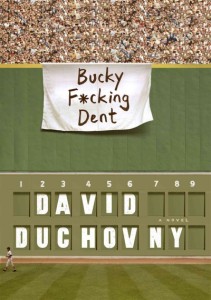
So, David Duchovny’s first book (Holy Cow, which I haven’t reviewed because…well, why?) was amusing, and I listened to him read it on audio so my inner fangirl enjoyed it. But this is a real book, and I enjoyed it even more. Duchovny, a novelist – who knew?
On the surface, it’s about a man who has squandered most of his opportunities and could be dismissed as a total loser. But if you read for just a few pages, you get hooked. By the end, you’ll realize the story is really about love. Love of family, of friends, of lovers – it covers them all, and when you finish the book you’re glad a) that you probably aren’t as fucked up as the protagonist and b) he finally got to express his love to the people he should have.
It’s not a happy book – people get together, break up for dumb reasons, lose other people they love, lie to each other, and make many poor life choices. You know, like life. And if you like baseball, there’s the added element of the whole thing playing out against the backdrop of the 1978 playoffs to spice things up for you. For an unremarkable hitter, Bucky Dent sure ruined a whole lot of people’s lives (including our protagonist’s) with one, stupidly lucky home run at the exact wrong moment. Of course, if you’re a Yankees fan, you probably see this the other way. But that’s life, too.
Notorious RBG by Irin Carmon and Shana Knizhnik
Go to the bookstore or library right now and pick up this book. Don’t listen to the audio like I did, the pictures are the best part. As an audio, it’s too much like listening to someone read lists, or a timeline. So get the book and admire the artistic genius. After reading this and Sonya Sotomayor’s biographies, I am going to need to read every single biography that exists of Supreme Court justices. They are apparently all fascinating people (half the fun of this book is the exploration of the friendship between RBG and Antonin Scalia). Or maybe I will just start reading dissents – from the ones featured in this book and the one I read online the other day, each one could teach me more about law than I ever thought possible.
Seriously, if you consider yourself a feminist you have to read this. RBG has spent her life taking on cases of sex discrimination – against both men and women – hoping to establish the precedent that discrimination on the basis of sex is always wrong. She figures once that is accepted as a given that white men shouldn’t be discriminated against because of their gender, it will follow that discrimination against women is also wrong – and by extension, that discrimination on the basis of race is also wrong. She’s playing the long game, and I personally hope she lives forever, or at least long enough to see her dream realized.
Archivist Wasp by Nicole Kornher-Stace
I made my book club read this book and none of them were mad at me for it. Therefore, it must be worthy of review.
I can’t really give a description of this book that won’t make it sound like another Hunger Games, or Divergent, or any other post-apocalyptic YA novel about a girl in a desperate future trying to survive, but you’ll have to trust me that it is so, so much more than that. Wasp’s future is so bleak it really isn’t worth living in at all, and there isn’t the romantic element that runs through those other YA books, and Wasp doesn’t need to spend several books changing the world, she does it in one. Seriously, Wasp could kick Katniss’ and Tris’ asses at the same time and still get something else done that day.
The premise: Wasp lives in a society where there is barely enough food to go around, people live hand-to-mouth, and all modern technology has been lost, but no one knows exactly what happened to make it this way. The future is full of ghosts, who outnumber and threaten the living. For years, “chosen” girls (known by the scars on their faces, purportedly left by the goddess Catchkeep’s claws) have been collected by the Catchkeep Priest, who raises them and supervises the work of one girl – the Archivist. The Archivist’s job is to hunt ghosts, use them to try to find out what happened in the past if she can, and then dispatch them so that they can no longer harm the living. Every year, one of the girls (an “Upstart”) is chosen to fight the current Archivist. If the Upstart wins, she becomes the Archivist. If she loses, the Archivist keeps her job (and her life) for another year. Wasp has been the Archivist for 3 years. Her life is miserable. She lives apart from the other girls and the villagers fear her, so she has no contact with anyone other than the sadistic Catchkeep Priest, who controls her life completely. She cannot escape – she’s tried, and the Priest and his dogs always find her and bring her back. The work is horrible – she traps ghosts, tries to extract information from them, and then kills them day after day, and never makes much progress deciphering why her world is the way it is – until the day she finds a ghost who has retained enough of his memories to talk to her. He needs her help to find another ghost. Can she trust him? Will helping the ghost free Wasp from her life as she knows it? She is desperate enough to give it a whirl. And the story goes from there.
What is this book like? It’s kind of like Divergent or Station Eleven, in the sense that the world has changed but lots of old stuff (abandoned cities, random objects) are still lying around, many of their purposes forgotten. It’s like the Hunger Games in that children are forced to fight to the death. It’s like The Handmaid’s Tale in the sense that girls are raised for a religious purpose that they know nothing about, by sadistic men who don’t tell them the whole story. (And maybe like Brave New World where children are predestined to do what society needs them to do, regardless of whether that’s what they want.) Another story that kept popping into my mind as I read it was Sheri Tepper’s Raising the Stones. Even though the details aren’t the same, the general idea of young people carrying on a religion that they don’t know the origin of is similar.
A member of my book club suggested that I should post the questions we used for our discussion, since we all sometimes have trouble finding discussion questions and have to Google around to see if anyone else has done it for us. So, as a gesture of goodwill to other book clubbers out there, here they are:
- The ghost doesn’t even remember why he must find Kit any more, but he is still compelled to try. Have you ever had a goal that you pursued even after almost forgetting why?
- Did you expect the ghosts of the defeated Upstarts to help Wasp? Would you have?
- Did you expect a romantic relationship between Wasp and the ghost as soon as you realized that he was male?
- One review I read said the journey through the underworld was “repetitive and boring”. do you agree or disagree?
- page 69 test. Go.
- Imagine for a moment what it would have been like for Wasp and Kit to meet and get to know each other. Would they be friends?
The Education of Kevin Powell by Kevin Powell
Ever choose a book to read based only on its cover? This was one of those. I was shelving holds and came across this adorable little boy (look at that outfit!) and wanted to read his story, even though I had never heard of Kevin Powell and had no idea why I should. Now that I’ve finished the book, I can tell you that the reason to read this book is that he’s a human, and he has something to say, and he is in a constant process of learning from his own mistakes, which makes him interesting.
Anyway, now I know who Kevin Powell is (I can’t believe I didn’t, but then I went through a period in my life where I didn’t watch TV, listen to new music, or read magazines much). He is a writer, a political organizer, a reality TV star, and a (so far) failed state congressional candidate. Most famously, he wrote for Vibe magazine and was one of the first people to write about Tupac Shakur. But the details of his life (which reads like a who’s who of American pop culture at times – this guy knows everybody) are less important than the insight he provides into a generation of African-American men who were steered strongly by their parents to get a good education and a better life, but simultaneously pulled away from that goal by circumstance, random choices, and the culture of their schools/ neighborhoods. Powell’s life story reminded me somewhat of both Wes Moores (The Other Wes Moore – reviewed earlier) – each of these men wanted badly to succeed, but each was constantly tempted down other paths or manipulated by systems in our society that many people don’t even see. For all of those people out there who don’t think that society is skewed to discriminate against people of color and poor people of all colors, this book (and The Other Wes Moore) will make it obvious that poor young people of color suffer a great deal more than their white, middle-class counterparts when a setback occurs. One poor choice, one bad grade, one random accident that a more affluent young person could overcome easily can completely derail a young person who has no safety net.
Warning: you might not actually like Kevin Powell at a few points. He is learning to manage his anger, and learning to let down his guard a little, but there’s no denying that for most of the book he is a very angry, defensive man who doesn’t like himself very much. He has some definite misogynistic leanings, and doesn’t like white people very much either. But what redeems him is that he knows these things about himself, and he’s working on it. You can’t ask for more than that.
Cutting For Stone : a Novel by Abraham Verghese
I started this book…last summer?…because the work book club was reading it. I really enjoyed it at first, but for some reason I bogged down in the middle because a) it was due back at the library and b) I was really frustrated with Marion, the protagonist, and some members of his family that annoyed me. Then I had to wait forever for it to come around on the holds list again, and stop being mad at Marion (because as my father always says, you can choose your friends but you’re stuck with your family, so poor Marion is stuck), and finally finish it off.
Basically, this is a love story about a man who is madly in love with both his profession and his country, while also thinking he is in love with a woman, but he’s really in love with his idea of a relationship with that woman, so that doesn’t work out. If you can get past being embarrassed for Marion over his one-sided, nearly imaginary relationship with a girl he grows up with, it’s actually a great coming-of-age story. We begin in Ethiopia at a hospital called Missing (Mission Hospital, actually, but no one calls it that). Marion is the son of an English surgeon and an Indian nun who work there. He and his twin were born unexpectedly – the nun never told anyone that she was pregnant, and their father was a blackout drinker and had no idea they’d ever consummated their relationship. There are complications, she dies, their father leaves Ethiopia in shock and grief, and the boys are taken in by another doctor at the hospital. Once the boys have a family, the story takes flight.
When the boys are about to finish high school – Marion plans to go to medical school and Shiva just wants to be done – there is a pivotal event that changes the life of Genet, the girl Marion loves. Shiva does something that hurts Marion deeply, and sets a whole sequence of events into motion that I can’t describe without ruining the story. Suffice it to say, Marion leaves Shiva by stages – first moving out of their shared bedroom, then out of the country to finish medical training in the United States. How they reconnect, what happens to Genet, what happens to their adopted parents and what happened to their missing father – it’s all out in the open by the end. I still am not quite sure I forgive Marion for being quite so stupid about Genet, but it was definitely worth reading the book despite his romantic ineptitude.
After I finished the book, I looked on Amazon and saw that it is reviewed there by John Irving. I found this funny, because throughout the book I kept comparing it in style to a John Irving novel. (Something about the grand scope of following someone from early childhood on, and feeling like you’ve become part of their life by the end. Plus all of the medical parts.) If you’ve read A Prayer for Owen Meany, or The Cider House Rules, Marion is very like both John Wheelwright and Homer Wells (and if I think about it too much, Shiva is rather like Owen Meany in the sense that he holds so much sway over Marion even when he isn’t present, and because he is odd and no one but Marion truly “gets” him). So if you like Irving, or Charles Dickens, or Thomas Hardy or any of those long rambling life story writers, you’ll probably like it.
Oh – and don’t be fooled by the history of the Ethiopian revolution while reading this. The events of the story follow the spirit but not the letter of the actual historic events. So you’ll get an idea of what life was like in Ethiopia at the time, but don’t take the story’s events as fact.

